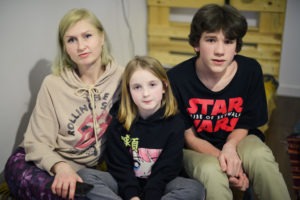Activity: Kahoot Quiz on Housing | Duration: 10 Mins
Activity: Childhood Homelessness: and Its Lasting Effects | Duration: 30 Mins
Children who have experienced homelessness are more likely to have health problems, go hungry, experience developmental delays and have higher rates of depression, anxiety and behaviour disorders than other children . Excessive noise, the lack of space, laundry, bathroom and cooking facilities, the absence of play, no visitor rules, shame, displacement and daily uncertainty all have a negative and long lasting impact on children. The long lasting effects of such trauma and displacement can put the child at increased risk of poverty, social exclusion and adult homelessness long after they have moved out of homeless services.
In this activity, participants will reflect on the long term impacts caused by housing insecurity or homelessness. They will carry out a child rights impact assessment (CRIA) and learn how to use this to draft key messages in advocating for children’s right to adequate housing.
The purpose of this activity is to educate participants about the causes of the housing crisis in Ireland and encourage discussion on potential solutions for future generations.
- Watch the Video: Begin the session by watching a video that explains the current and long-standing housing crisis in Ireland.
- Divide participants in to pairs or smaller groups for discussions, and provide each group with the two handouts. Participants will complete the following steps:
- Analyse the current housing crisis and identify key causes, challenges, facing Ireland.
- Handout the housing models across Europe: Identify possible models/solutions to Ireland’s housing crisis that your group thinks should be adopted.
- Handout the Blueprint of the Future and ask participants to design a future city or community that they would want to live in, by identifying your core values and how those values can be used in the design of future neighbourhoods and communities.




